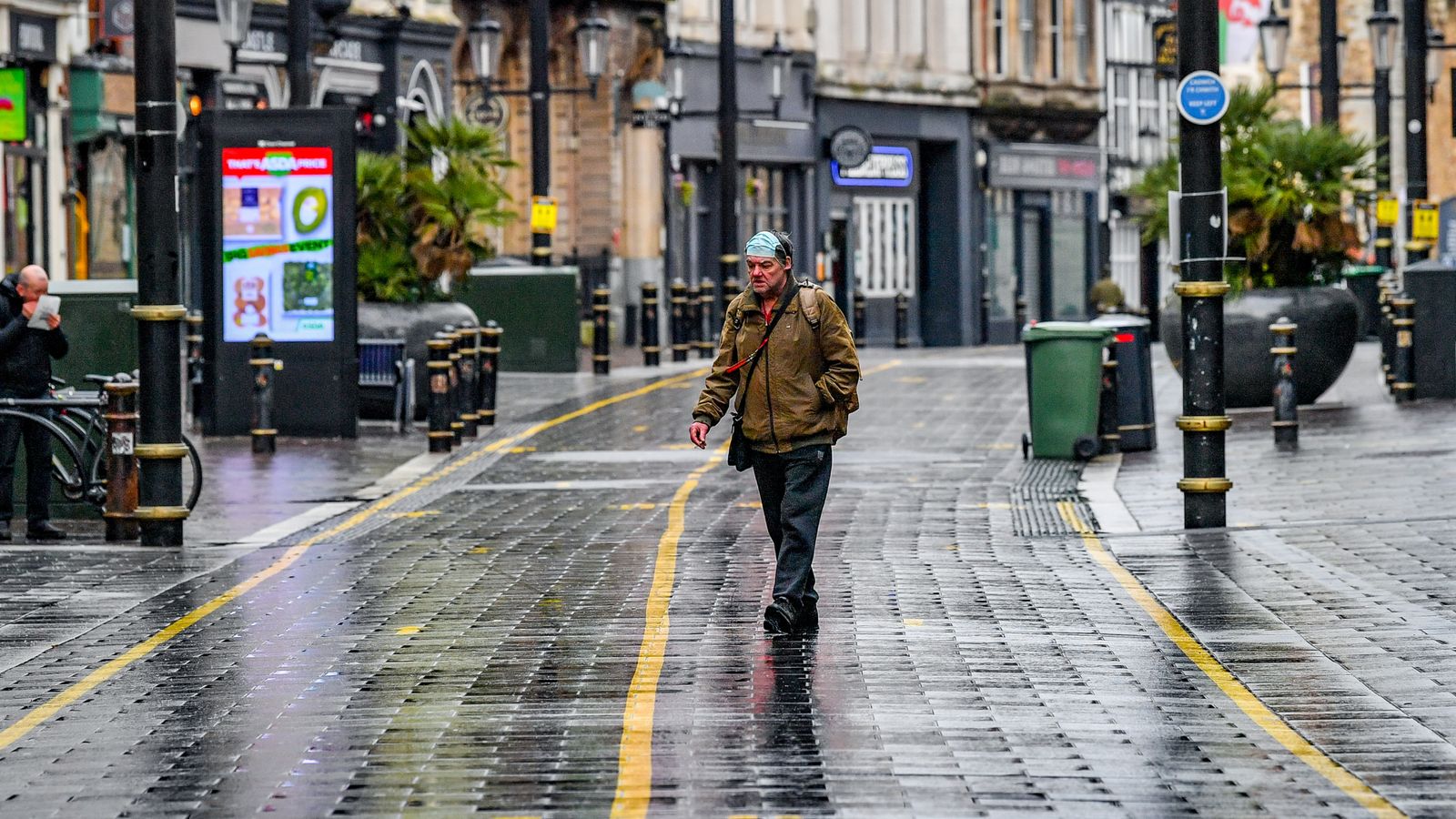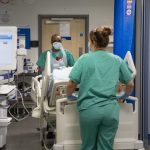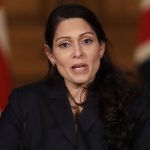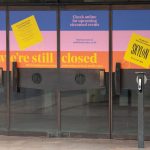“Very modest changes” have been made to the coronavirus lockdown in Wales, with the first minister expressing hope of allowing more substantial alterations in the weeks to come.
Formally announcing the extension of restrictions for a further three weeks, Mark Drakeford said levels of COVID-19 in Wales were at the lowest level since the end of September.
He said the seven-day incidence rate for the virus was around 84 cases per 100,000 people, with positivity rates falling and the R number below 1.
Latest coronavirus updates from the UK and around the world
Please use Chrome browser for a more accessible video player
“There’s evidence the reductions in the community are now being seen in the NHS,” Mr Drakeford told a news conference.
“The total number of people in hospital with coronavirus has fallen below 1,800 for the first time since early December and the number of people with coronavirus needing intensive care is 50% lower than at the peak of the pandemic.”
Although restrictions have been extended once more, the first minister said some “very modest changes” would be made.
From Saturday, four people from two different households can exercise outdoors together to help those struggling during lockdown.
“This does not mean that it is permissible for people to drive somewhere to exercise and it does mean exercise, not socialising,” Mr Drakeford said.
Please use Chrome browser for a more accessible video player
He added: “Next week, we will change the law to allow licensed wedding venues, such as visitor attractions and hotels to reopen, but only for the purpose of performing weddings and civil partnerships.
“And as more people are living and working in care homes with the vaccine having been delivered, we will look again at the most difficult and challenging issue – how to allow more visits in care homes to take place, provided it can be done safely.”
The first minister also said on Friday that Wales would consider allowing its tourism industry to partially reopen in time for Easter.
Self-contained accommodation, including hotels and bed & breakfasts with room service, alongside caravans and lodges, could be allowed to operate once more.
Mr Drakeford floated the possibility of travel restrictions being enforced to prevent people from areas with high levels of COVID coming into Wales once the tourism sector is allowed to reopen.
“I think we developed over the last year a number of ways in which we were able to reduce the flow of traffic from high incidence areas to low incidence areas,” he said.
“That’s always been what I have wanted to achieve. The border is not the issue, the issue is trying to make sure that coronavirus doesn’t get seeded again in low incidence areas.
“So as we move ahead and as we get to the point where we are able to resume travel in Wales, that will be one of the principles that we will use to make those decisions and if it’s necessary, to enforce those decisions.”
With regards to schools, the Welsh government has confirmed that foundation phase children under seven will be able to return to the classroom from Monday.
Some vocational learners, such as apprentices, will also be allowed to go back to colleges to access training or workplace environments for their practical qualifications.
:: Subscribe to the All Out Politics podcast on Apple Podcasts, Google Podcasts, Spotify, Spreaker
All primary school pupils and those in years 11 and 13, who have to sit exams, could return from 15 March if the situation continues to improve.
Blended learning is expected to be used for the return of older primary and secondary school pupils, with pupils only in the classroom “some of the time” and a mix of face-to-face teaching and online lessons.
The lockdown measures will be reviewed again in three weeks – at which point the Welsh government will consider reopening non-essential retail and close contact services like hair salons.
Discussing the country’s coronavirus vaccine rollout, the first minister said almost 840,000 people had received their first dose, equivalent to one third of the adult population of Wales.
“We are on track to reach the next milestone, to offer vaccination to everybody in priority groups five to nine by the end of April provided that vaccine supplies also remain on course,” Mr Drakeford added.






















